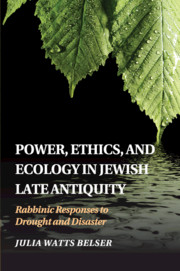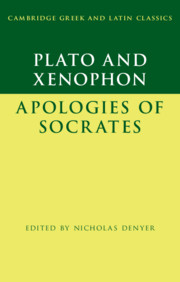Plato and the Talmud
- Author: Jacob Howland, University of Tulsa
- Date Published: October 2010
- availability: Available
- format: Hardback
- isbn: 9780521193139
Hardback
Other available formats:
Paperback, eBook
Looking for an inspection copy?
Please email [email protected] to enquire about an inspection copy of this book
-
This innovative study sees the relationship between Athens and Jerusalem through the lens of the Platonic dialogues and the Talmud. Howland argues that these texts are animated by comparable conceptions of the proper roles of inquiry and reasoned debate in religious life, and by a profound awareness of the limits of our understanding of things divine. Insightful readings of Plato's Apology, Euthyphro and chapter three of tractate Ta'anit explore the relationship of prophets and philosophers, fathers and sons, and gods and men (among other themes), bringing to light the tension between rational inquiry and faith that is essential to the speeches and deeds of both Socrates and the Talmudic sages. In reflecting on the pedagogy of these texts, Howland shows in detail how Talmudic aggadah and Platonic drama and narrative speak to different sorts of readers in seeking mimetically to convey the living ethos of rabbinic Judaism and Socratic philosophising.
Read more- A groundbreaking comparison of Plato's dialogues and the Babylonian Talmud that sheds new light on the inner relationship of Athens and Jerusalem
- Illuminates the pedagogical significance of Talmudic storytelling and Platonic narrative and drama
- Offers fresh readings of essential rabbinic and Platonic texts
Reviews & endorsements
'Jacob Howland's Plato and the Talmud is a splendid addition to the small - but growing and distinguished - body of work in the secular academy, which takes as its fundamental principle that teaching and scholarship in the humanities must include a basic knowledge of the great Rabbinic corpus of the first millennium of the Common Era. And here Howland shows with remarkable clarity that the Rabbinic material has a tight conceptual relationship to one of the other formative traditions of western culture, namely Greek philosophy of the Platonic school. This is a remarkable book, wide in its knowledge, graceful in its presentation, modest in its posture: exactly what real scholarship should be.' Donald Harman Akenson, author of Surpassing Wonder: The Invention of the Bible and the Talmuds
Customer reviews
Not yet reviewed
Be the first to review
Review was not posted due to profanity
×Product details
- Date Published: October 2010
- format: Hardback
- isbn: 9780521193139
- length: 294 pages
- dimensions: 235 x 160 x 23 mm
- weight: 0.52kg
- availability: Available
Table of Contents
Introduction: Athens and Jerusalem
1. Talmudic and Platonic writing
2. Rabbis and holy men
3. Prophets and philosophers
4. Fathers and sons
5. Words and deeds
6. Gods and men
7. Miracles and necessity
Epilogue: tests and traditions.
Sorry, this resource is locked
Please register or sign in to request access. If you are having problems accessing these resources please email [email protected]
Register Sign in» Proceed
You are now leaving the Cambridge University Press website. Your eBook purchase and download will be completed by our partner www.ebooks.com. Please see the permission section of the www.ebooks.com catalogue page for details of the print & copy limits on our eBooks.
Continue ×Are you sure you want to delete your account?
This cannot be undone.
Thank you for your feedback which will help us improve our service.
If you requested a response, we will make sure to get back to you shortly.
×




